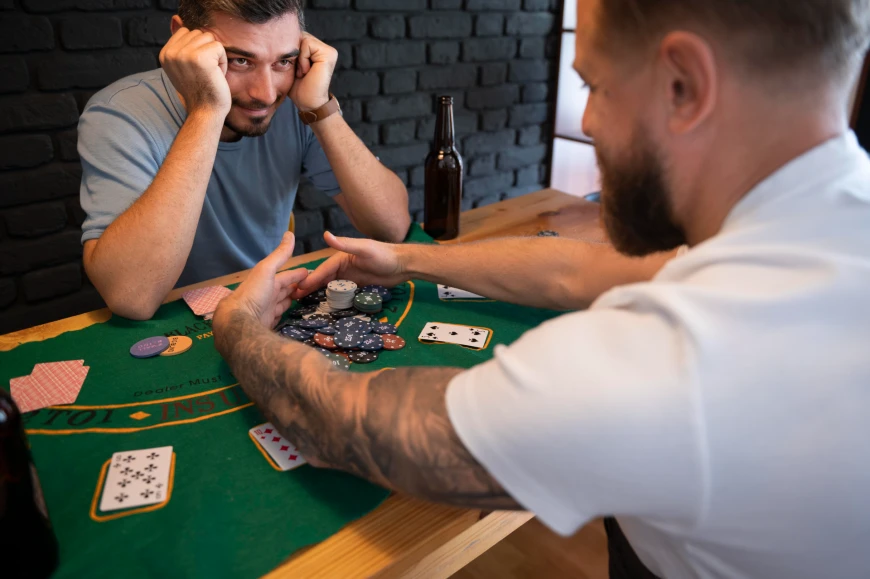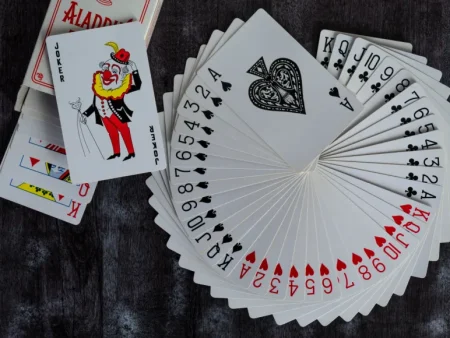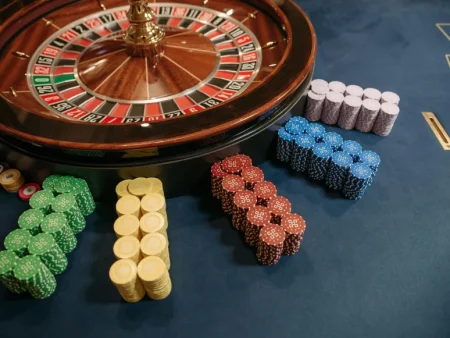Gambling addiction, often called gambling disorder, is a condition that can impact anyone in the U.S. It starts small, maybe at a casino, a slot machine, or even online poker. Over time, gambling behavior may spiral into compulsive gambling. Problem gamblers often keep playing even when they’ve spent too much or harmed close relationships.
If gambling is causing damage, it’s time to think about how gambling may be shaping your future. The National Council on Problem Gambling says support groups, treatment options, and a helpline like the National Problem Gambling Helpline can help you stop your gambling and regain control.
What Defines a Gambling Addiction?
Gambling disorder is more than just bad luck at poker or gaming; it can be pathological. Compulsive gambling can be challenging because it drives people to keep playing despite harm. A gambler may lose important opportunities, lie to family members, or borrow money due to gambling. American Psychiatric Publishing lists it in the fifth edition of the DSM as a behavioral health condition.
Gambling changes the brain’s reward system, much like substance use. People experiencing these struggles may need treatment options like cognitive behavioral therapy, Gamblers Anonymous, or a treatment program through behavioral health services. These resources are free and confidential and can help you or someone you know get gambling treatment.
Top 10 Proven Tips to Overcome Gambling Addiction
These tips help problem gamblers regain control. They focus on treatment, self-help, and practical steps for anyone who needs the help they can use.
1. Acknowledge the Problem
Say it: “I have a gambling problem.” This truth breaks denial. Admitting the problem is the first step toward recovery. With honesty, you can get help through Gamblers Anonymous, the National Council on Problem Gambling, or the National Problem Gambling Helpline. Acceptance makes it easier to start a treatment program and stop your gambling.
2. Identify and Avoid Triggers
Think about what sparks the urge. Is it stress, boredom, or being near a casino? High-risk situations increase the pull of gambling. Avoid them. If online poker tempts you, block sites. Self-exclude from casinos. Removing triggers reduces relapse. Identifying and avoiding triggers is key to staying on the right track.
3. Join a Support Group
Support groups like Gamblers Anonymous provide free and confidential help. People share struggles, and you realize you’re not alone. Hearing others talk about how gambling harmed them builds strength. Being part of a support system helps you or someone you know stay focused. Support groups are proven to treat gambling problems.
4. Seek Professional Help
Professional treatment is vital. Therapists use a lot of models to help, including cognitive behavioral therapy, evidence-based programs, and medical support to treat gambling. They address co-occurring depression or anxiety, too. A trained M.D. or counselor helps you set goals, avoid relapse, and regain control. This professional support system helps people experiencing gambling disorder stay on the right track.
5. Create and Implement Financial Control
Turn over finances to someone you trust. Set budgets with financial counseling. Limit credit card use. These steps reduce the chance of gambling. Building a financial structure helps repair trust with family members or friends. Self-exclusion tools also help prevent relapse. Controlling money is a strong way to stop your gambling.
6. Find Healthy Hobbies
Replace gambling with healthy hobbies. Try physical activity, music, or art. Exercise reduces stress. Creative outlets give joy without the risks associated with gambling. Volunteering can create purpose and connection. These activities help balance emotions and give meaning. Healthy hobbies help prevent relapse and support healing.
7. Create a Strong Support System
Talk openly with family members or friends. Ask for help. People who care about you will support your journey. They can remind you of your goals and stop relapse. A support system gives accountability and strength. Building trust again improves close relationships and helps recovery.
8. Set Realistic Goals
Recovery takes time. Set small, realistic goals. Try avoiding gambling for one week, then one month. Celebrate small wins. Each step builds confidence and proves you can regain control. Setting goals keeps progress steady and prevents relapse. Goals create hope when recovery feels slow.
9. Be Ready for Relapses
Relapse happens. It does not mean failure. Learn from it. Ask what triggered it. Adjust your plan. Support groups and professional treatment can help you see relapse as part of the journey. Being ready for setbacks keeps you moving forward instead of quitting.
10. Block Gambling Access
Self-exclusion programs block casinos and gaming sites. Apps can block gambling websites. Taking away access removes temptation. This tool is evidence-based and used to treat gambling addiction. Blocking access helps protect recovery. Each barrier adds strength and makes relapse harder.
The 4 Stages of Gambling Addiction
Experts explain that gambling often passes through stages. Each one shows how gambling can change lives and increase the risk of developing compulsive gambling. Recognizing these stages helps someone you care about seek support and avoid deeper harm.
1. Winning Stage
The winning stage feels thrilling. The gambler wins, maybe on poker or a slot machine, and the rush is strong. That win makes the gambler think gambling is a real solution. Soon, they think about how gambling could solve money issues or stress. But this creates high-risk situations. Gambling harm begins quietly, and the gambler’s belief in easy money sets the stage for bigger problems.
2. Losing Stage
In this stage, the gambler starts chasing losses. They try to win back money they’ve spent, but lose even more. Debt piles up, bills go unpaid, and gambling is causing visible strain. Family members or friends may notice mood swings or missing money. Losing important chances or close relationships becomes more common. The cycle of gambling and thinking about winning the money you’ve spent grows harder to break.
3. Desperation Stage
Desperation shows when gamblers borrow, sell belongings, or hide gambling behavior. Shame builds. Some may face legal problems due to gambling. Depression or anxiety may appear, especially with co-occurring substance use. Life feels unmanageable, and compulsive gambling can be challenging here. At this point, treatment options like professional counseling or support groups become urgent. Without support, gamblers face even more risk factors.
4. Hopelessness Stage
In this stage, gamblers may feel trapped. They believe they cannot quit gambling, even though it costs them important opportunities and close relationships. Despair sets in. Some withdraw from family members or friends and think there’s no hope. This is when calling 1-800-GAMBLER or the national problem gambling helpline is critical. Even at this point, professional treatment, therapy, and self-help programs can help rebuild lives.

7 Early Signs and Symptoms of a Gambling Problem
Understanding the signs and symptoms early can help prevent gambling harm. Below are common signals linked with problem gamblers.
1. Preoccupation with Gambling
Gamblers may think about gambling all day. They recall old wins, plan the next casino trip, or play more than one game online. This obsession takes time from work, school, or family. Gambling and thinking that gambling could fix life problems is dangerous. Preoccupation shows that a gambling disorder is forming.
2. Difficulty Controlling Gambling
Someone struggling with a gambling problem often tries to quit gambling but cannot. They set rules and break them. They keep saying, “Just one more bet.” This lack of control is a sign of compulsive gambling. Free and confidential support groups and resources available through the National Council on Problem Gambling can help you or someone you care about regain control.
3. Chasing Losses
Chasing losses is when gamblers keep betting to recover what they’ve spent. For example, losing $200 on a slot machine, then playing again to win it back. This almost always leads to more losses. Gambling may bring stress, shame, and guilt. Chasing losses is a key risk factor in gambling disorder.
4. Financial Problems
Financial problems are common. People borrow from family members or friends, take out loans, or use credit cards due to gambling. Bills go unpaid. A gambler’s financial system collapses. Legal issues can follow. Financial counseling becomes vital. Money trouble is one of the clearest signs that gambling is causing harm.
5. Impact on Daily Life
Gambling can change routines. Skipping school, work, or family events becomes more frequent as you become addicted. Someone may lose important job chances or harm close relationships. When gambling behavior replaces daily life, the person is facing compulsive gambling. The gambler’s focus shifts to gaming instead of healthy living.
6. Increasing Bets
Over time, gamblers raise the stakes. Small bets no longer bring excitement. They may play more than one slot machine or gamble larger sums. This builds tolerance, similar to substance use. The risk of developing a full gambling disorder grows as bets increase. Bigger bets lead to losing important financial stability.
7. Emotional Changes
Compulsive gambling can be challenging for emotions. Gamblers may feel depression or anxiety, have mood swings, or lash out at loved ones. Emotional strain hurts close relationships. Stress due to gambling often leads to hopelessness. These emotional changes show how gambling disorder harms more than just money—it harms health and family bonds.

Professional Solutions for Gambling Addiction
Professional solutions give structure and long-term support. They treat gambling with care and evidence-based methods.
Therapy and Counseling
Therapy helps gamblers understand risk factors and change harmful thoughts. Cognitive behavioral therapy is often used to treat gambling. Counseling may include family members or friends. Behavioral health experts use self-help strategies and evidence-based treatment to reduce gambling harm.
Rehabilitation Programs
Rehab programs offer structure. Inpatient programs give daily support. Outpatient programs allow recovery while living at home. Both help problem gamblers stop gambling, rebuild habits, and regain control. Rehabilitation programs also use support groups to prevent relapse.
Medical Support
Doctors sometimes prescribe medications for treating a lot of mental health problems like depression or anxiety, which also lower gambling urges. Medical support adds another layer of care. Department of Health or behavioral health clinics can provide these options. Medical support helps reduce relapse and strengthen recovery.
Financial Counseling and Legal Help
Problem gamblers often face financial damage due to gambling. Financial counselors help repair debt and create a safe budget. Legal help may be needed for court cases associated with gambling. From having a gambling problem to local resources, tapping into these readily available support systems can assist you in rebuilding trust and stability. Money and legal support help prevent relapse.
How Long Does it Take to Overcome Gambling Addiction?
Timelines vary. Some recover in months, others take years. Relapse may slow progress. What matters is consistency. Each day away from gambling is a win. The focus should be on effort, not speed. Support groups, therapy, and treatment programs improve chances of success.
Recovery may not move in a straight line. Someone may improve, then fall back. That’s part of the process. Compulsive gambling can be challenging, but long-term change is possible. With persistence, people affected by gambling can rebuild close relationships, recover important opportunities, and regain control.
Can I Handle Gambling Addiction Alone?
Some try to quit gambling alone, but it’s very hard. Willpower often is not enough when trying to stop. Self-help tools may help, but support groups, therapy, and the national problem gambling helpline give better results. Free and confidential resources help prevent relapse and improve success.
Facing gambling addiction alone also means triggers feel stronger. Having someone you care about by your side increases resilience. Seeking help shows strength. Even if you begin alone, joining treatment options and calling 1-800-GAMBLER makes recovery more realistic. Getting gambling support ensures you stay on the right track.
FAQs
Is gambling addiction curable?
Gambling disorder may not vanish forever, but it is treatable. Evidence-based therapy, support groups, and treatment programs help stop your gambling. With the right support, people regain control and rebuild their lives. Recovery means repairing close relationships and replacing gambling with healthy habits. Many live balanced lives after they get treatment.
What triggers gambling addiction?
Triggers include boredom, stress, or depression. High-risk situations like visiting a casino or playing online poker can spark urges. Substance use or co-occurring anxiety also plays a role. Understanding these risk factors helps prevent relapse. Identifying what triggers you personally makes it easier to stop gambling.
Who is most at risk of developing problem gambling?
People with depression or anxiety, substance use issues, or a family history of gambling harm are at increased risk. Young adults playing online poker or slot machines also face high risk. The Department of Health warns about people experiencing co-occurring conditions. Knowing these risk factors helps protect you or someone you care about.
What to replace online gambling with?
Healthy activities replace gambling best. Exercise or physical activity lowers stress. Art, writing, or music builds creativity. Spending time with family members or joining support groups builds strong connections. Volunteering creates purpose and helps with daily routines. These activities reduce the urge to gamble and create balance in life.















